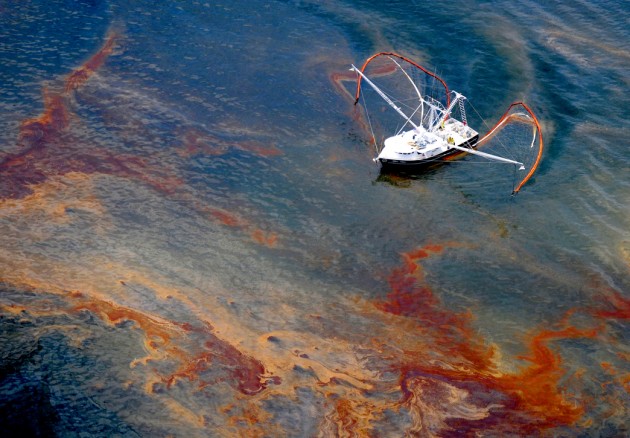USF continues its research of Gulf oil spill

The USF College of Marine Science will continue research on the aftermath of the 86-day Deepwater Horizon oil spill into the Gulf of Mexico for at least the next two years, former Dean of the College of Marine Science William Hogarth said, seeking for funding and hiring new faculty members to complete its work.
Thus far, USF’s research of the spill has relied on funding from BP and other sources such as the National Oceanic and Atmospheric Administration (NOAA), the State of Florida and the USF Research Foundation, Hogarth said.
He said BP allocated $10 million to help the state of Florida conduct research, with about $9.5 million spent so far on proposed research projects. Of that $9.5 million, USF received $3.7 million.
The College of Marine Science also received $250,000 from NOAA for damage assessment of the spill, about $70,000 from the state of Florida for research and $500,000 from the USF Research Foundation to investigate the biological effects of the spill on natural processes like the food chain, funding six projects in all, Hogarth said.
“We received more money than some of the other institutions,” he said. “For one of our current projects, we partnered with the University of Miami and Florida State University. We may continue to partner with others in the future in order to put the money to the best of its ability.”
Despite the increase in funding, Hogarth said USF has only secured enough money to continue research for the next two years — a small timeframe to accomplish the projects.
“We believe, based on what we’ve seen with the amount of oil and the range that the oil is distributed, along with the fact that some of the oil we have found had been toxic to some of the lower forms of life on the food chain, there is enough work to be done in the Gulf of Mexico for at least five or 10 years,” Hogarth said.
In order to continue research, USF will have to apply and compete for research money as it becomes available. BP will allocate $50 million per year to research for the next nine years, but the company must also pay a fine for every barrel of oil spilled into the Gulf. The money paid in fines may be used for research as well, he said.
To ensure that oil spill research remains an objective of the University, the College of Marine Science announced Monday its plans to hire Steven Murawski, the current chief science adviser for NOAA’s National Marine Fisheries Service, as a faculty member.
Vickie Chachere, news manager for University Communications, said Murawski will come to USF as the St. Petersburg Downtown Progress-Peter R. Betzer Endowed Chair.
She said Murawski will work alongside other faculty within the college to develop scientific projects around the fisheries in the Gulf.
“He will be someone who, because of his expertise and his familiarity with the spill, is going to be able to contribute scientific knowledge and understanding of how to interpret the different findings of scientists and what they mean,” she said.
Murawski specializes in analyzing the health of oceanic environments and fisheries, Chachere said, and has played a key role in incorporating scientific knowledge into policy making.
“When you are going out onto a research vessel on the ocean, it is very important who is on board the vessel with you, who is collaborating with you and what sort of preparation you have,” Chachere said. “For students to learn from him, when he’s one of the best in the world, is going to be an amazing opportunity.”
She said Murawski has been a colleague of Hogarth’s for about 20 years and will begin employment with USF in January.
At the time of publication, Murawski was traveling back to the U.S. from Portugal and could not be reached for comment. Hogarth also could not be reached for comment regarding Murawski’s employment with the University.






